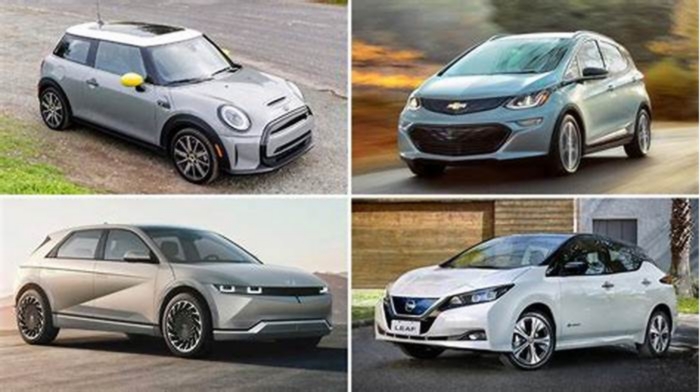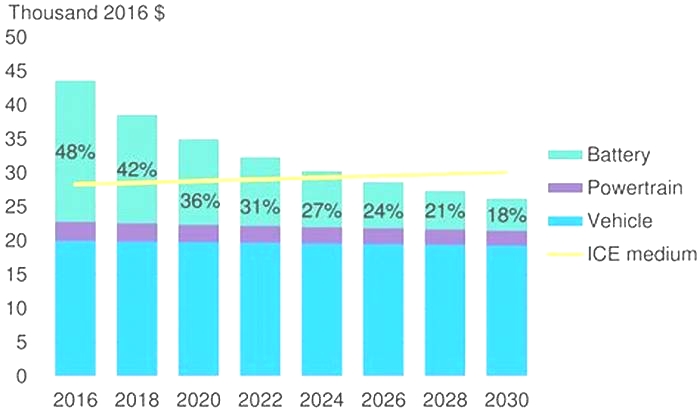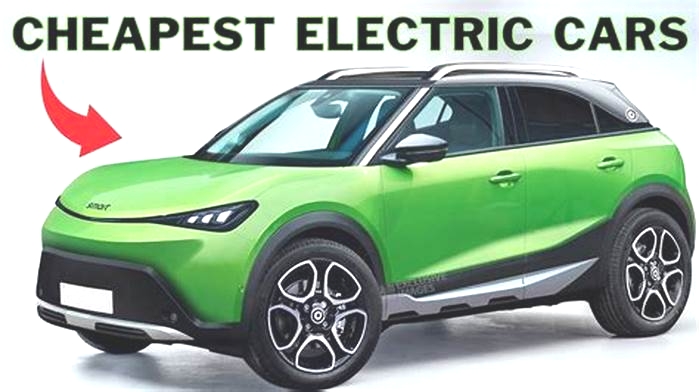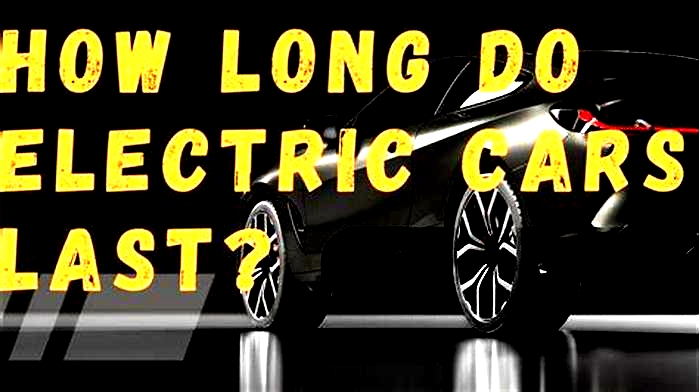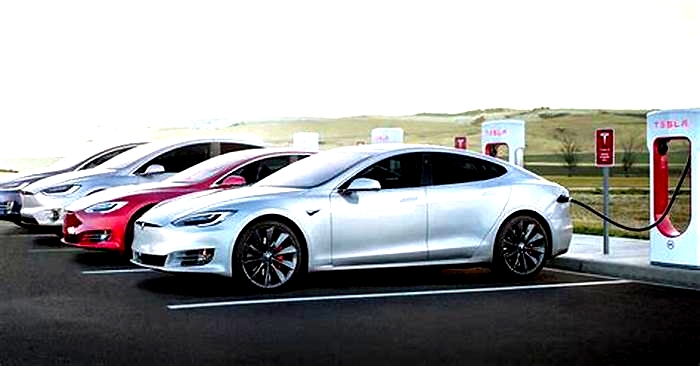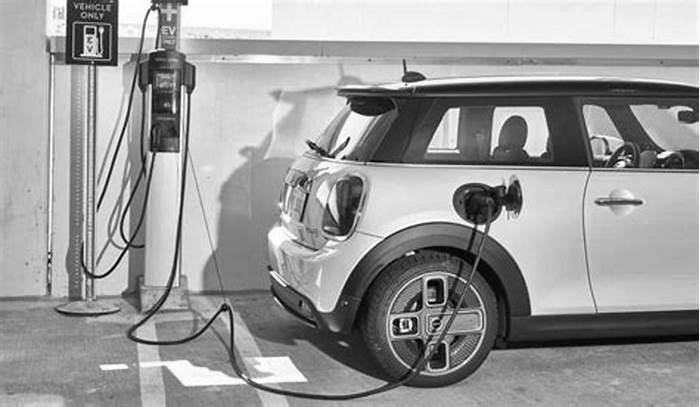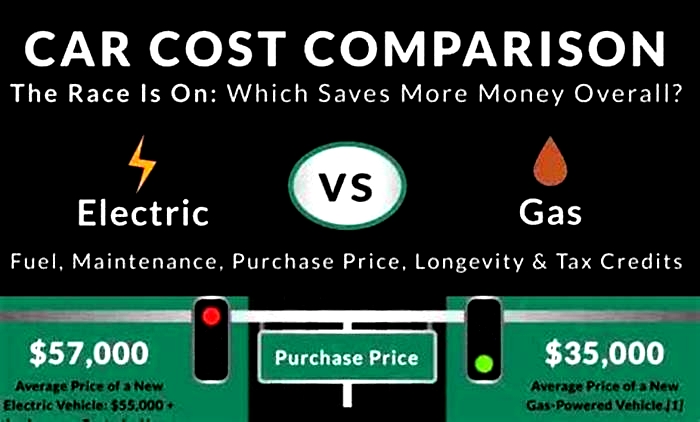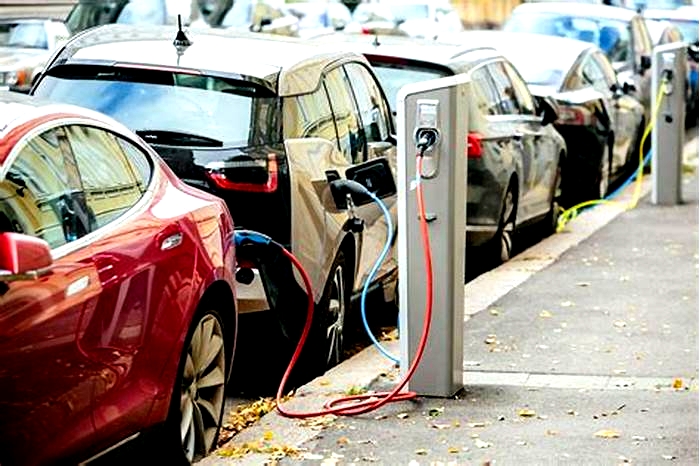Are electric cars cheaper in the long run
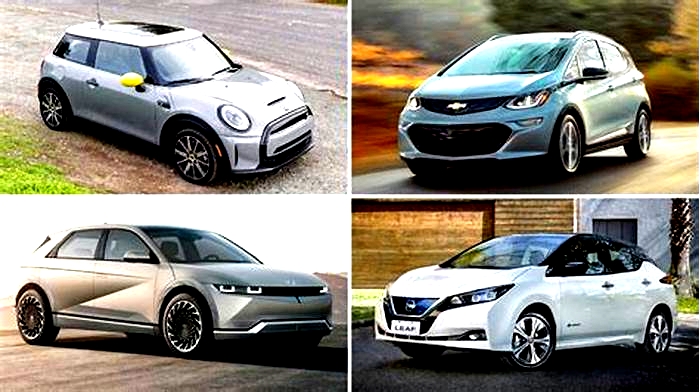
Are Electric Cars Cheaper to Run in 2024
Are EVs cheaper to run than petrol and diesel cars? Weve compared the running costs of electric cars against those of traditional cars, taking into account the latest fuel and electricity prices in the UK.
In addition to fuel expenses, we will examine the costs related to maintenance, the expected lifespan of the vehicles, and other relevant expenses. This research provides an overview of the overall running costs of each type of vehicle so we can assess which is the cheapest to run.
Are Electric Cars Cheaper to Run?
Electric cars are currently cheaper to run in the UK compared to traditional petrol and diesel vehicles, especially when using the most competitive EV energy tariffs to charge the car.Specifically, using Octopus Energys overnight charging rate of 7.5p per kWh, the cost for an electric car to cover 100 miles is just 1.312. This is significantly less than the 15.84 it costs for a petrol car and 13.77 for a diesel car to travel the same distance.
However, not every EV owner has access to the 7.5p rate from Octopus. Even without this special rate, charging an EV is still less expensive. For instance, at a standard electricity rate of 29p per kWh, the cost to drive 100 miles costs 5.07. If you use public charging stations, which may charge a higher rate (an average of 59p per kWh), the cost rises to 10.32 for the same distance. Despite the higher rates compared to the Octopus special rate, both of these charging costs are substantially lower than the 15.84 spent on petrol for a 100-mile journey, meaning that electric cars are cheaper to run.We check this data every month and update the calculations based on the current cost of electricity, petrol and diesel in the UK, you can read our full methodology below:
Methodology: How Do We Know EVs Are Cheaper?
To work out if electric cars are still cheaper to run, we compared the current cost of fuel or electricity that is needed to drive a certain distance, we took a 100-mile journey as an example.First, we considered the average efficiency for each type of car:
- Electric Car Fuel Efficiency A typical electric car consumes around 15-20 kWh to travel 100 miles, but for this calculation, lets take a median of 17.5 kWh per 100 miles.
- Petrol Car Fuel EfficiencyAn average petrol car might run at 40 miles per gallon (mpg).
- Diesel Car Fuel EfficiencyDiesel cars are typically more fuel-efficient than petrol cars, and an average diesel car might achieve 50 miles per gallon (mpg).
Now, lets calculate the costs to work out if electric cars are really cheaper to run:
Electric Cars Running Costs for 100 miles
Using the current cheapest EV tariff on the market (7.5p per kWh overnight charging with Octopus Energy), the cost to travel 100 miles would be:17.5 kWh 0.075 / kWh = 1.312Not all EV owners have access to the best current charging tariff of 7.5p. If you are on a standard UK electricity tariff you will likely pay 29p per kWh for your electricity in Q1 2024.
Those who charge their EVs using a standard electricity tariff, priced at an average of 29p per kWh, face a different cost structure. The calculation for travelling 100 miles would be:
17.5 kWh 0.27 / kWh = 5.07This is three times more expensive than the Octopus tariff, but still much cheaper than a petrol or diesel equivalent.EV owners who rely on public charging such as dedicated EV charging forecourts or supermarket chargers, will face even higher costs. The average cost of public charging is around 59p per kWh, so the cost to travel 100 miles is calculated as follows:
17.5 kWh 0.59 / kWh = 10.32
Petrol Cars Running Costs for 100 miles
The current price of petrol in the UK is 1.44 per litre (March 2024)and to travel 100 miles, youd need 11 litres (given the 40 mpg efficiency):11 litres 1.44 = 15.84
Diesel Cars Running Costs for 100 miles
The current price of diesel in the UK is 1.49 per litre (March 2024) and to travel 100 miles (given the 50 mpg efficiency) you would need 9 litres: 9 litres 1.53= 13.77
With these costs, we can answer the question of which type of car is cheaper to run, petrol or electrical:
Are electric cars cheaper to run than petrol cars?
While EV tariffs offer the most cost-effective option, standard electricity tariffs and supermarket charging still present cheaper alternatives compared to traditional petrol and diesel vehicles. Electric cars cost 1.312 to travel 100 miles using the overnight charging rate with Octopus Energy, 4.72 with a standard electricity tariff and an average of 10.32 if charged using a public charger. Petrol cars cost 15.84 for the same distance. Therefore, with this electricity rate, electric cars are indeed cheaper to run than petrol cars in the UK.
Are electric cars cheaper to run than diesel cars?
Electric cars cost 1.312 to travel 100 miles using the overnight charging rate with Octopus Energy, while diesel cars cost 13.77 for the same distance. Therefore, with this electricity rate, electric cars are also cheaper to run than diesel cars in the UK.
These figures only work if electric car owners are consistently charging their vehicles overnight with Octopus Energy or a similar discounted rate. Even when using other charging stations, EVs are still cheaper to run than petrol or diesel cars.

Do EVs cost more than petrol cars?
Electric cars still cost more than petrol cars in the UK. The upfront cost of many new EVs out this year is still higher than petrol cars mainly due to the expense of the battery systems.However, with technological advancements, economies of scale in production, and increased competition, the prices of EVs have been steadily decreasing in recent years.The UK government have offered incentives and grants to reduce the overall cost of buying an EV. While the initial purchase price of EVs in the UK might be higher the gap is closing.
Do electric cars retain resale value?
Initially, its fair to say there were concerns about the resale value of EVs compared to traditional UK cars. The primary concerns centred around:
- Battery LifeEarly EV models had limited range and there were worries about battery degradation over time. The potential high cost of battery replacement affected perceptions about the long-term value of an electric car.
- Technological AdvancementRapid advancements in EV technology meant newer models often had significantly improved range and features, making older models seem obsolete more quickly than traditional cars.
- Lack of Consumer FamiliarityAs EVs were relatively new to the market, many potential second-hand buyers were unfamiliar with or hesitant about EV ownership.
Over recent years, this is starting to shift thanks mainly to improvements in battery tech.Todays electric vehicles are equipped with batteries that are not only more reliable but also have a significantly extended lifespan, plus many electric car manufacturers are now offering extended warranties on their EV batteries.
The growth in charging infrastructure in the UK has led to less range anxiety and the appeal of EVs, including used ones, is only set to grow.
Taking a closer look at the current market data, we can see that some electric car models have been holding their value exceptionally well. For example, the Tesla Model 3 according to a 2020 study, experienced one of the lowest depreciation rates among all car categories. The Nissan Leaf has also been holding its value surprisingly well in resale statistics.
EV servicing and maintenance running costs
When considering the running costs of EV maintenance, there are a few technical reasons why they are considered cheaper to MOT and maintain than petrol or diesel cars:
Simple EV MotorThe electric motor doesnt have as many moving parts as a conventional petrol or diesel engine. So theres less wear and tear and parts to replace.
No Oil ChangesTraditional cars need routine oil changes, EVs do not need oil changes. As there is no engine to lubricate electric cars do not use oil.
Brake System LongevityMany electric cars come equipped with regenerative braking. This system captures the energy usually lost when slowing down and feeds it back into the battery. As a result, the physical brake components experience less wear.
How much Tax do you pay with an EV?
In the UK, we have a number of tax benefits that reduce the overall running cost of an EV:
- Benefit-in-Kind (BIK) RateOne of the most significant tax incentives for EVs is the advantageous BIK rate. The BIK is a tax for company car drivers based on the cars value and its CO2 emissions.For fully electric vehicles, the current UK BIK rate is just 2%. This is a substantial reduction compared to petrol or diesel vehicles, which can have BIK rates as high as 37%. The 2% BIK rate means that employees can enjoy the perks of a company car with a much-reduced tax liability.
- Exemption from Road TaxAnother tax benefit for electric vehicle owners is the exemption from road tax, formally known as Vehicle Excise Duty (VED). Since this tax is calculated based on CO2 emissions EVs are exempt from road tax.
- Salary Sacrifice for Electric Company CarsThe salary sacrifice scheme allows employees to give up a portion of their salary in return for benefits, such as an electric company car. This not only allows employees to obtain a new EV without any upfront costs but also means that the salary is effectively reduced before tax, leading to income tax and National Insurance savings.Given the low BIK rate and VED exemption, providing you choose carefully and pick one of the best EV salary sacrifice schemes, this approach can be incredibly tax-efficient. Its a win-win, with both employers and employees benefiting from National Insurance contribution savings.

What about insurance costs for EVs?
When considering the overall running costs of electric cars, insurance does cost more than petrol cars. We look at this in detail in our review of EV insurance costs. The average insurance cost for EVs is currently 113 higher than that for petrol cars.EV insurance costs more because of the higher value of the car, the higher insurance group that EVs tend to be in and repair costs. However, its important to balance this with the other savings that you can get from EVs in other areas, such as fuel efficiency and lower maintenance costs.
The final word on electric car running costs
Its clear from the various types of running costs involved in vehicle upkeep that EVs are cheaper to run. How much cheaper EVs cost to run than petrol cars depends on
Various factors not just the direct expenses of fueling or charging but also other factors such as maintenance, servicing, avoiding clean air zone charges, and tax.
Firstly, in terms of fueling costs, electricity if you are being smart about your charging and using the best off-peak rate, is a much cheaper fuel when compared to petrol or diesel. Given the ever-rising prices of fossil fuels and the potential for more affordable electricity tariffs, this cost gap should widen even further in the future.
Maintenance and servicing costs also favour EVs. With fewer moving parts, no need for oil changes, and longer-lasting brake systems due to regenerative braking the servicing costs associated with EVs are typically lower.From a tax perspective, the UK is distinctly pro-EV. The ultra-low 2% BIK rate, combined with road tax exemptions and the possibility of acquiring an EV through a salary sacrifice scheme, offers good financial benefits to both employees and employers.Despite the UK government announcing in 2023 that they plan to delay the ban on ICE cars in the UK to 2035, theres still potential for further incentives and benefits to be introduced to encourage EV purchases. So while the initial purchase price of an EV might sometimes be higher than a petrol car, when you view the overall cost of running the vehicle, its clear that electric cars are still much cheaper to run.
Ready to dive even deeper...
John Ellmore
John is the Editor and Spokesperson for Electric Car Guide.
With over 20 years of writing experience, he has written for titles such as City AM, FE News and NerdWallet.com, covering various automotive and personal finance topics.
Johns market commentary has been covered by the likes of The Express, The Independent, Yahoo Finance and The Evening Standard.

